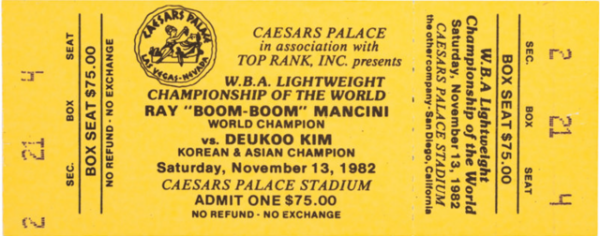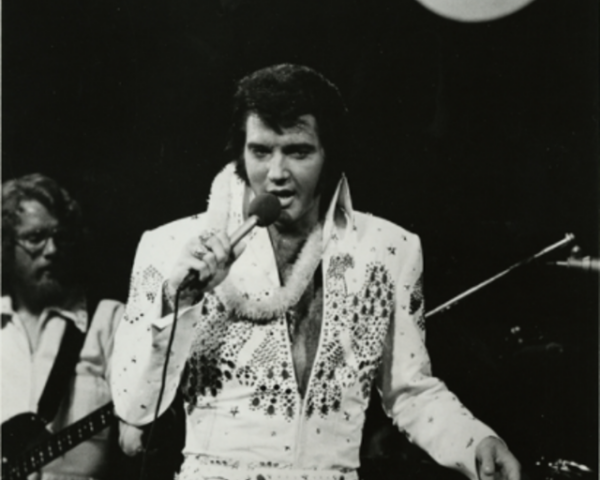On November 13, 1982, the lights of Caesars Palace glared down upon the ring as WBA lightweight champion Ray “Boom Boom” Mancini stepped forward to defend his title against South Korea’s young challenger, Duk Koo Kim. What unfolded that night was one of the most brutal and consequential bouts in modern boxing history—a contest that would leave an indelible mark on the sport, not only for its violence but for the tragedy that followed.
The fight began as a clash of wills between two men of extraordinary courage. Mancini, just 21 years old, was already a national figure—the son of Italian-American fighter Lenny Mancini, who had seen his own career interrupted by World War II. Mancini carried both his father’s dream and a relentless fighting style that made him a fan favorite. Across from him stood Kim, a 23-year-old little known outside Asia but revered in Korea for his toughness and spirit. He had trained in near poverty, living in a spartan apartment in Seoul, his entire career aimed at this single shot at the world title.
From the opening bell, it was clear the bout would be a war of attrition. Mancini pressed forward with his characteristic aggression, throwing combinations to the body and head. Kim refused to yield, answering every assault with his own furious flurries. The early rounds were even, the crowd roaring as both men absorbed punishment that would have broken lesser fighters. By the middle rounds, however, Mancini’s experience and precision began to tell. Kim’s face swelled grotesquely, yet he continued to stand in the center of the ring, exchanging blows in what many described as an act of sheer willpower.
By the thirteenth round, the accumulation of punishment was taking a visible toll. Mancini landed a series of clean right hands that snapped Kim’s head back. The challenger’s legs wobbled. Referee Richard Green watched closely but allowed the action to continue. Finally, early in the fourteenth, Mancini unleashed a decisive barrage. Kim crumpled to the canvas, beaten but not broken, trying to rise as the referee waved off the fight. The time was 19 seconds into the round. Mancini, exhausted and bloodied himself, rushed to Kim’s corner and raised his hand in respect, unaware that the battle had crossed a terrible line.
Moments later, Kim collapsed in his corner and lost consciousness. He was carried from the ring on a stretcher, his head lolling, and rushed to Desert Springs Hospital. Surgeons performed emergency brain surgery to remove a large blood clot, but his condition remained critical. For four days he lay in a coma before succumbing to his injuries on November 18, 1982. The news stunned the boxing world. Mancini, devastated, wept openly when told Kim had died. “He was a warrior,” he said later. “We both gave everything we had. It could have been me.”
The aftermath of Kim’s death reshaped boxing’s modern era. Public outcry mounted over the sport’s brutality, and regulatory bodies faced renewed pressure to protect fighters. The World Boxing Association and other governing organizations soon reduced championship bouts from fifteen rounds to twelve—a change designed to limit fatigue and cumulative head trauma. The decision, adopted by the WBC and IBF as well, marked a new safety standard that remains in place today. Referees and ringside physicians were also granted greater authority to halt fights earlier, and medical supervision at events became far stricter.
Tragedy, however, did not stop at Kim’s passing. His mother, consumed by grief, took her own life three months later. Referee Richard Green, haunted by the outcome, died by suicide the following year. Mancini struggled for years with depression and guilt, at times questioning his faith and his future in the sport. Though he continued to fight, he later admitted he was never quite the same.






